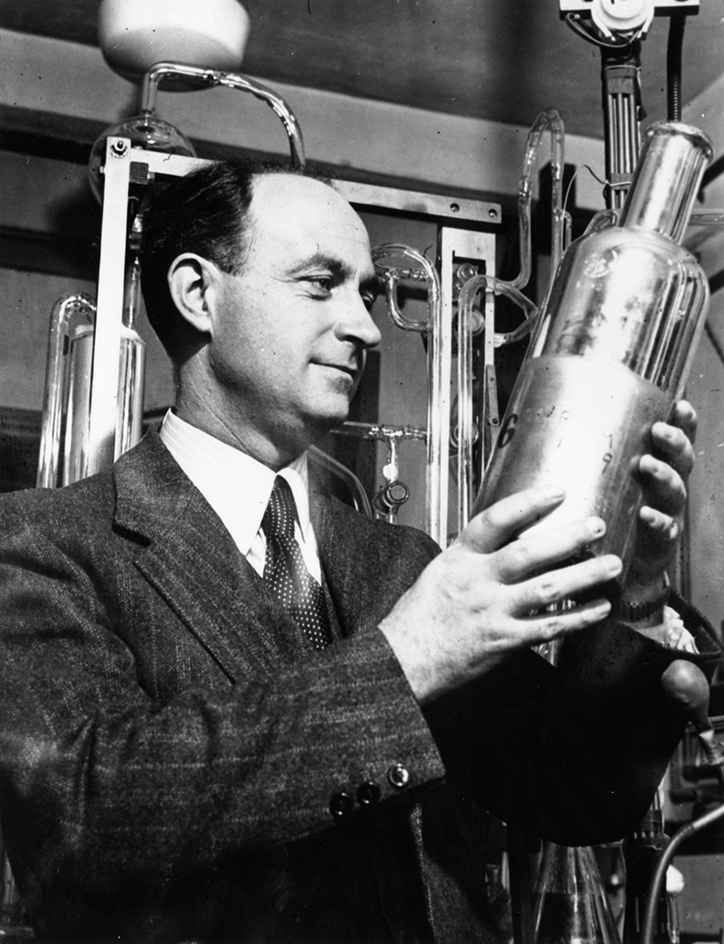Fermi, Enrico, << FUR mee or FEHR mee, ehn REE koh >> (1901-1954), an Italian-born American physicist, designed the first nuclear reactor and produced the first nuclear chain reaction in 1942. He later worked on the atomic bomb project at Los Alamos, New Mexico.

Fermi won the 1938 Nobel Prize in physics for his work on nuclear processes. He made important contributions to radioactivity, quantum theory, and other areas of physics.
Fermi began bombarding many chemical elements with neutrons in 1934. He proved that slow neutrons are effective in producing radioactive atoms. As a result of these experiments, Fermi announced in 1934 what he thought were elements weighing more than uranium, not realizing that he had actually split the atom. Otto Hahn and Fritz Strassmann of Germany performed a similar experiment in 1938. Lise Meitner and Otto Frisch showed that these experiments had split the uranium atom and named the process nuclear fission. Fermi and other scientists used nuclear fission to power the first atomic bombs in 1945.
Fermi was born on Sept. 29, 1901, in Rome. He received a doctor’s degree from the University of Pisa in 1922. He then returned to Rome, where he became professor of theoretical physics at the University of Rome in 1927. Fermi left Italy in 1938 to escape the Fascist regime and settled in the United States. He became a professor of physics at Columbia University in 1939. He moved to the University of Chicago as a professor of physics in 1942. He became an American citizen in 1944. After World War II (1939-1945), he pioneered research on high energy particles. He died on Nov. 28, 1954.
See also Alien life; Fission; Nuclear energy (The development of nuclear weapons) .
